Category: Terminal Illness
Articles about terminal illnesses that one typically sees and cares for on hospice.
Articles about terminal illnesses that one typically sees and cares for on hospice.
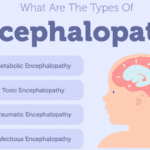
Caring for a loved one with terminal metabolic encephalopathy requires compassion and understanding. This guide provides insights into recognizing symptoms, adapting care strategies, and supporting the patient and caregiver through this challenging journey.
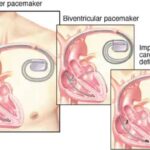
Learn about the differences between pacemakers and ICDs, their functions, and the implications for patients and caregivers. Discover why pacemakers should stay on, and ICDs should be turned off at the end of life for comfort and dignity.
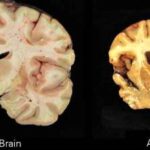
Learn about Chronic Traumatic Encephalopathy (CTE) dementia, its symptoms, diagnosis, and care strategies to support those affected and their families.

Learn about cortical dementia: its symptoms, treatments, and impact on daily life. Get empowered with essential knowledge to navigate this condition.
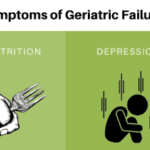
Discover essential insights into Adult Failure to Thrive—a condition affecting older adults. Learn why early recognition and compassionate care are crucial for improving quality of life.

Adult daycare can be a great way to support your loved one with dementia. It offers engaging activities and social interaction, while giving caregivers some much-needed respite. Learn how to choose the right center and prepare for the transition.

Discover practical strategies for supporting a loved one with cognitive decline during doctor visits. From preparation to follow-up, learn how to communicate effectively, respect autonomy, and handle sensitive topics. This guide offers valuable tips for caregivers to ensure productive appointments and quality care for their loved ones.

Explore the role of oxygen saturation in hospice care, where comfort takes precedence over numbers. Learn how hospice teams prioritize quality of life, interpret vital signs differently, and make ethical decisions about oxygen use. Discover a compassionate approach focused on dignity and peace.
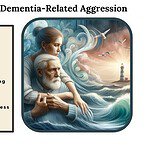
Dementia can lead to aggressive behavior in elderly patients, causing distress for both them and their caregivers. This comprehensive guide explores the underlying causes of aggression, from sleep disturbances to medication side effects, and offers practical, empathetic strategies for managing these challenging situations and improving the quality of life for all involved.

This comprehensive guide empowers families to navigate care plan meetings for terminally ill loved ones. Learn the significance of these meetings, how to prepare, communicate your loved one's needs, and advocate for their best interests. Gain insights into recognizing when meetings are necessary and the benefits of regular care planning. Equip yourself with the knowledge to ensure your loved one receives personalized, dignified care aligned with their wishes.

When a loved one is facing a serious illness, it can feel like standing at a crossroads. Each path represents a different way to care for them in their time of need. It’s a moment filled with tough choices and deep emotions. This article thoroughly explains hospice care, its philosophy, and the benefits it provides to patients and families facing terminal illness. Learn about the decision-making process, the hospice experience, and how to navigate this difficult choice with dignity and love.

Dementia is a word we use to describe a significant change in the brain that makes it hard for people to remember things, think clearly, make decisions, or even control their emotions. It’s like a fog that slowly creeps in, affecting how a person thinks, feels, and lives daily. It’s not just one disease but a group of symptoms that can be caused by different diseases, including Parkinson’s and Alzheimer’s.
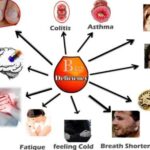
Vitamin B deficiencies can lead to severe health issues mimicking terminal diseases like nerve damage, anemia, and increased cancer risk. This comprehensive guide explores the symptoms, causes, diagnosis, and treatment options for vitamin deficiencies B1, B2, B3, B5, B6, B7, B9, and B12. Understand the importance of adequate vitamin B intake for energy production, metabolism, cell growth, and overall well-being.
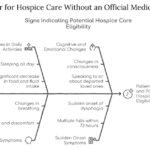
This article aims to provide information and guidance on qualifying for hospice care without an official medical diagnosis. We will explain hospice care, how to access it without a physician’s consent, what to expect, and how to make the most of it.

If you are caring for a loved one with pulmonary fibrosis, you may have many questions and concerns about their condition and how to support them best. You may also feel overwhelmed, stressed, or isolated by the challenges and responsibilities of caregiving. You are not alone. Many people face similar situations and emotions when caring for someone with chronic and progressive lung disease.
This article will help you understand pulmonary fibrosis and how it affects your loved one and yourself. It will also provide practical and helpful information on providing the best care for your loved one and yourself.
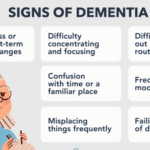
Learn to recognize early dementia signs and explore care options, including hospice. This guide offers insights into dementia, practical care tips, and when to seek professional help.

Caring for a loved one with dementia in rural areas can be challenging when local care facility options are limited. This guide explores alternatives, such as contacting organizations like the Alzheimer's Association, considering different facility types (adult day care, long-term care, respite care, memory care), seeking financial assistance, evaluating hospice eligibility, and assessing life plan/continuing care communities. It also addresses the legal and ethical implications of using hospitals as a last resort.
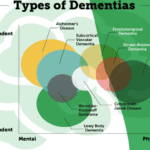
This article summarizes the twelve known types of dementia, which are the most common and well-studied forms of this condition. You will learn about the signs and symptoms of each type, how they are diagnosed, what causes them, and how they are treated. This article is intended for family members and caregivers of people with dementia who may want to understand more about the condition and how to support their loved ones.

Explore the complex world of dementia-related aggression and learn how to identify its underlying causes. This comprehensive guide offers insights into medication-related issues, pain management, and non-pharmacological interventions. Discover compassionate care strategies to support patients and caregivers on this challenging journey.

This article provides a compassionate guide for families and caregivers of individuals with dementia. It aims to offer insight into the progression of dementia and how to recognize when it may be time to consider hospice care. This article seeks to empower you with knowledge and understanding so you can make informed decisions that honor the dignity and comfort of your loved one.
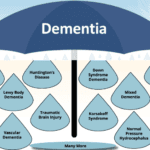
This article is like a flashlight in the dark. It’s here to shine a light on the path ahead, even when we don’t have all the answers. We’ll talk about how dementia can affect people differently and share some common signs that can help you guess what stage your loved one might be in.

Discover the unsung heroes of hospice care: primary caregivers. From family members to trained professionals, these compassionate individuals provide essential support to patients nearing the end of life. Learn about their crucial roles, challenges, and their impact in ensuring comfort and dignity for hospice patients.
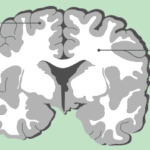
Discover the essentials of white matter disease, its impact on brain health, and how to support affected loved ones. This comprehensive guide offers insights into symptoms, diagnosis, treatment options, and practical tips for caregivers, empowering families to navigate this challenging condition with knowledge and compassion.
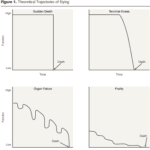
Have you ever wondered how different illnesses affect our lives and deaths? How do we cope with the uncertainty and unpredictability of our health? How do we plan for our future and make the best decisions for ourselves and our loved ones?
In this article, we will summarize and discuss the main points and findings of the paper and explore how they relate to our own lives and deaths. We will also provide practical and actionable suggestions for you to cope with and plan for your and your loved ones’ trajectories. We aim to help you understand the different types of illness trajectories, how they affect our lives and deaths, and how we can prepare for them.